- Deponie.
- /depoˈniː/ noun. (German for ‘landfill, dumpsite’) To put down, to place, to hand over, to trash; or, to otherwise find some new purpose for.
- Freude.
- /ˈfʁɔʏ̯də/ noun. (German for ‘joy, delight, fun’) Like checking off lists and resolving comment boxes; turning things over; shredding, or shedding; one thing or state into another.
- Bit rot.
- It isn’t only something that gets done to us, but something that we do. What makes us think that these things deserve to last forever, anyway.
Redundancies, glut (and superfluousness)
- Administering garbage.
- But that’s exactly where things get interesting. [1]
It was really a miracle that he was able to function. He had accumulated so much shit, it was starting to get concerning, or would have, if there had been anyone to be concerned.
As it was, all he was, was being practical. Weirdos hoard shit for god knows what reasons but he was keeping a collection of spares. Admittedly, there was a tight line one approaches when one, for example, collects spares for other spares or if you’re missing the very thing to donate parts for in the first place. But he was aware of that. Each time a new thing came into the house, he would reflect on that line. It was a dotted line, like those where you’d put your signature or tear along. Which one it was, that’s an open discourse, to be negotiated anew.
As of right now, there was a more practical concern. The electric razor had given up the ghost some days ago and since he was perpetually on the brink of dishevelment, he couldn’t let the matter rest. Even before the purchase, he had identified the internal nickel-cadmium batteries as a weak point in an otherwise well rounded product. Those were inevitably going to fail at which point the average consumer would have little choice but to throw the whole thing out since they were buried within a watertight, screwless chassis. This way, a simple battery change became a major undertaking.
Before plunging straight into the project, a short assessment was in order. There were old dishes still on the kitchen table, mixing with other repairs-in-progress, a circumstance he had deemed acceptable up until now. With the razor coming up, he felt they had to go. The table was not for eating anyway, not while it had things like unlabeled mason jars with household chemicals on it. Organizing the workspace, he paused briefly. It bothered him that he couldn’t remember how those plates got there.
Try as he might though, nothing came up. But it must have been pre-motor replacement, that’s for sure. Distinctly remember using the sanding wheel, thinking it would be okay with the debris and all if he declared them non-food plates. He moved them to the corner by the sink, for items to be turned food-safe once again.
Forgetfulness in general didn’t worry him. That was just how he was. Way back when, he had tried to make a big deal out of his first meal in the new apartment. It felt like a thing worth remembering, not quite a first kiss but close. And then, like every time he strained his memory, a blur washed over him, a dizzying mess of distant feelings, bleeding into each other. A smell here, a tune there, one bitter, one mellow, causing a familiar, choking reaction that would never fully develop into one of its many potential forms. Lately, he would just mutter random things, grimacing involuntarily, until he snapped out of it. He was getting out of hand, cultivating all those weird, screwy tics. Pull yourself together! If you’re going to be nostalgic, look at old photos or something. Talk to someone. So he decided to do both, after the repair.
The old backup drives were in their protective cases, in the appropriate drawer, labeled by date and with the compatible adapter plug next to them. He felt giddy at the thought of refreshing his fading memories. That was one of the perks of forgetfulness. Blurry images of memorable get-togethers would come back into focus and bring all sorts of details with them. An old song, a crazy thing someone had said, a quip or a joke. Yes, in some ways, those old drives were quite literally, canned laughter.
Start over, you’re telling it wrong!
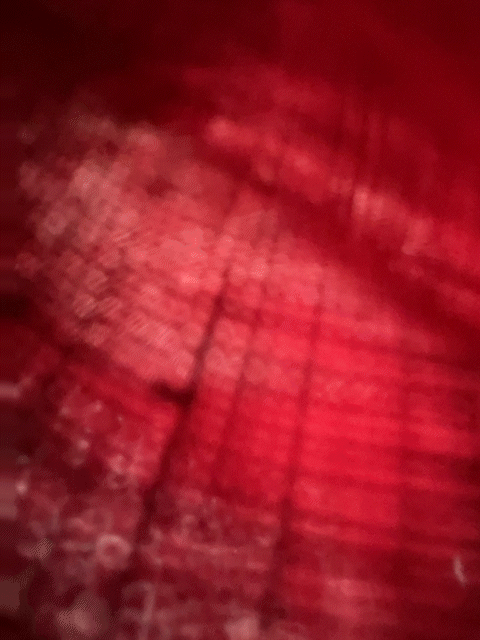

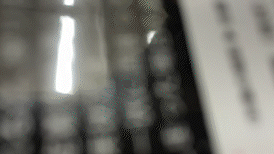

- Uselessness.
- Trash and uselessness are related but not the same. Trash is problematic and needs to leave our ideological boundaries, useless things we still view in terms of former or potential use. They are not quite trash precisely because they are defined through their lack of use, which requires continuous evaluation not discarding from our thoughts (revisit from time to time > Confirm: Yep, still useless. Trash: Too late, it’s already gone). Something something affirmation of non-predicate something Kant, I lack knowledge to conclude this thought insightfully.
Tears, breaks (and purposefulness)
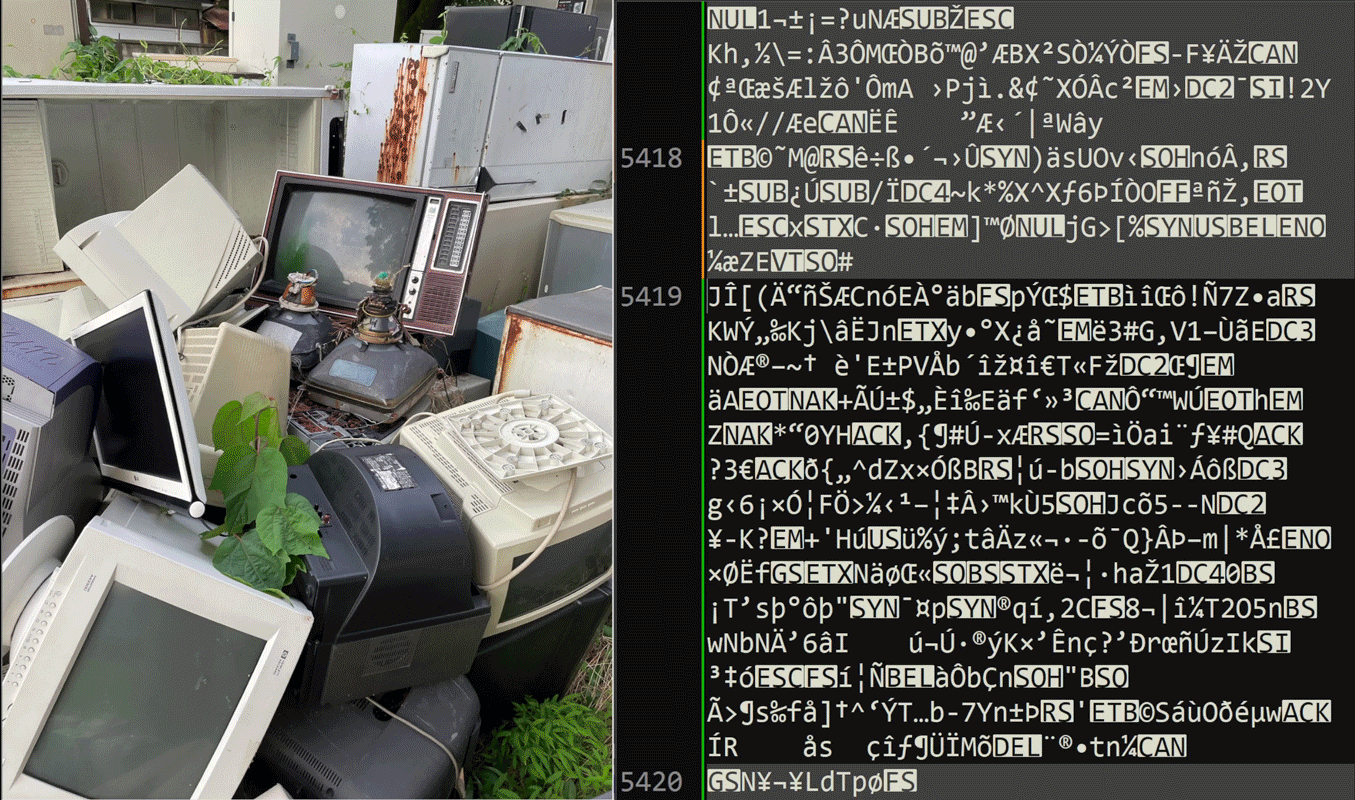
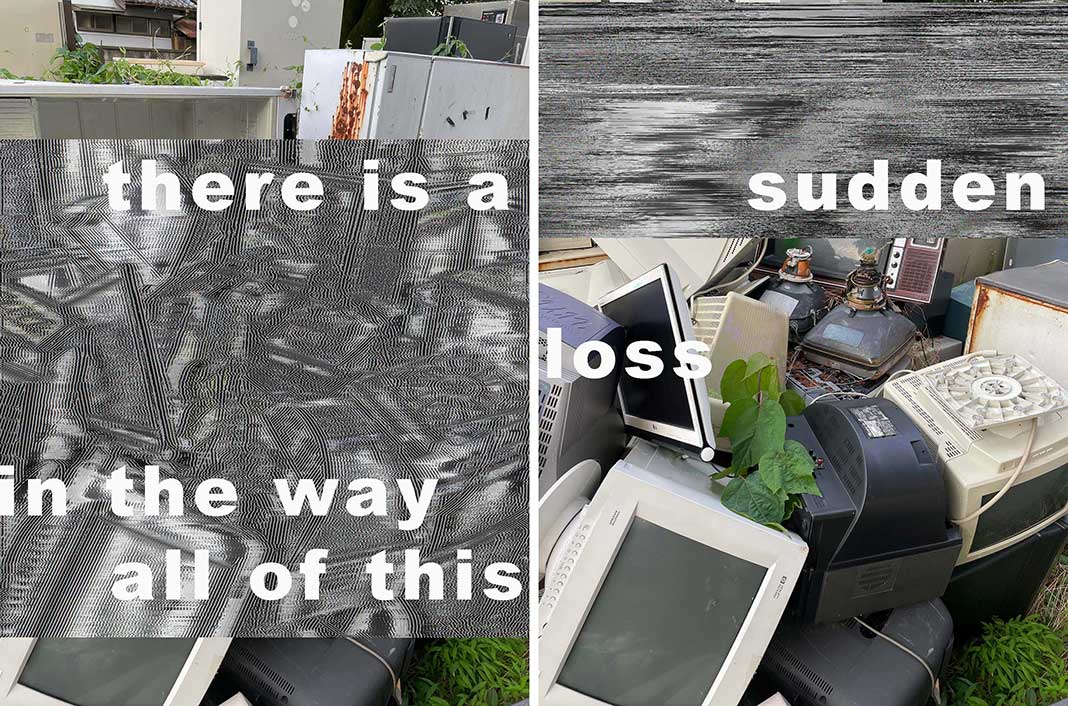
- Sollbruchstelle.
- /ˈzɔlbʁʊxˌʃtɛlə/ noun. (German for ‘predetermined breaking point’) Where the paper is supposed to tear; that dotted line along where things are meant to break, as if on purpose, or when needed; for machinery, as a functional or constructive dissecting, e.g. landing gear.
- Garbage Collection.
- Feature of programming languages; decides based on functional rules within the context of the programming language what data within a running program is garbage and what is not. Sometimes antagonistic relationships with the user/developer. We have to intervene and say “Not trash! I still care about this!” Hard and fast rules don’t work with trash. Imagine the garbage man coming to your house and choosing what is being trashed for you. Has repair/recycling any meaning in the digital domain? Is there only structure/non-structure?
- At this point, once again.
- A spark permanently breaks down the ever deteriorating substrate barrier in one too many flash memory cells and corrupts the file table. (And conveniently also the backup file table.) The highly fragmented data is now without assembly instructions. It has always been garbage, only temporarily interpreted as data by means of reading it differently. Now we lack the means for this conversion. The memory module is extracted and analyzed. Yep, it’s fucked. Into the trash it goes. If I really cared to, I could learn data forensics or pay an expert to perform a rescue but I can’t be arsed. My interest ends here.
But not our purposefulness.
When he became concerned about the growing amount of junk he had accumulated he’d contemplate his motivations, mostly to differentiate himself from weirdos hoarding shit for its own sake. For example: It never started out with the desire for a thing before the purpose. The purpose always came first, mostly in the form of another thing, prone to breakage. Every cooker, cutter, storage device, and other piece of technology that made its way into the household would be evaluated in terms of longevity before purchase. Other criteria were important too, in fact, there was a whole process of research attached to the shopping for devices that he called being an “informed consumer.” But it was the intention to, through means of repair and maintenance, get as much value as possible out of any object that led to the accumulation of spares. Sometimes that meant a second, broken version of a particular thing that contained some critical component or simply the component itself. Other times, he’d get spares on a whim, that he would be getting the thing to be repaired in the future. Getting spares for spares, that was concerning too, as was his diminished social life or certain emerging ticks he could observe lately. He was walking a tight line there and he kept a close watch on it. It was a dotted line, like those where you’d put your signature or tear along. Tear off part of your life.
- Bit rot.
- What are the forces that bring on various states of decay; from simple brokenness to what? Can we call it some kind of violence? Setting software in an inoperable system will force decay, sure, a kind of false uselessness brought on by the larger economic system. But what kind of violence is that? Forced and costly repair; inability to DIY? Is it worse than forgetfulness?
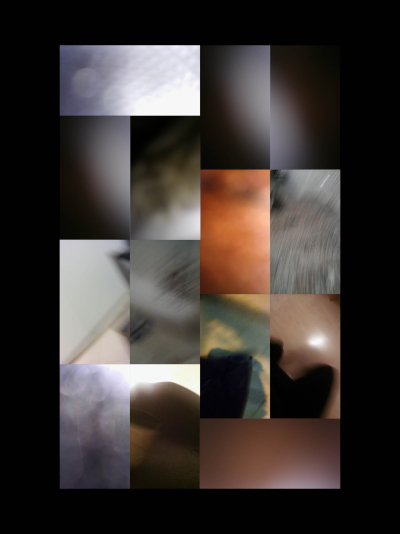

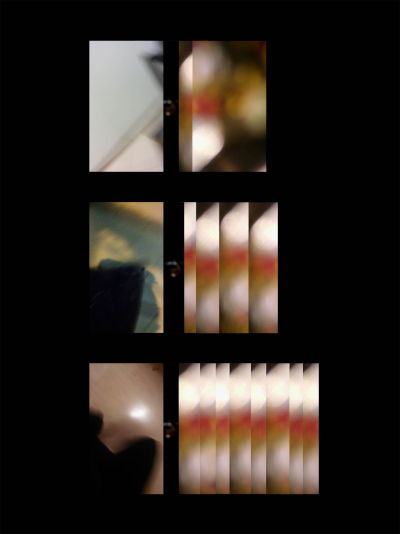
- Paper perforations.
- Then, what about accidents? Accidental photos? Coincidence from the pocket. Technological mistakes, when we say, not my intention. Here reordered and then put down, handed over.
Extensions, interfaces (and multiplicationmistakes)
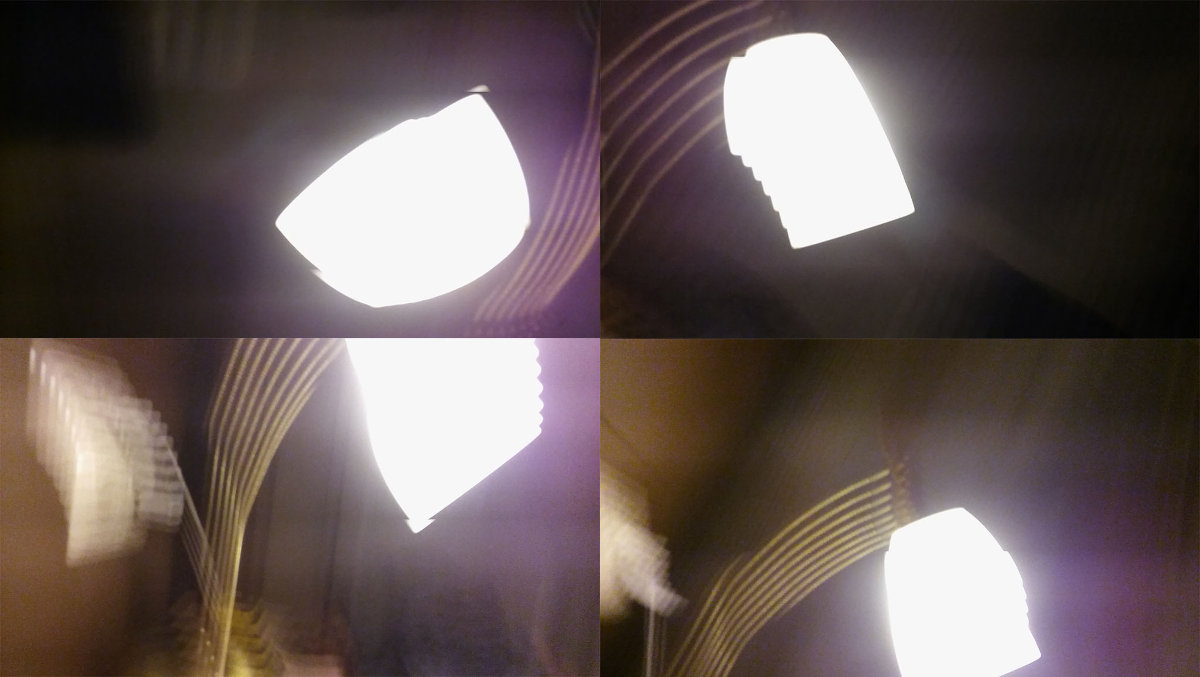
- Digital garbage.
- Different necessity. All data is trash. (All trash is nature? Is this why I kept that thought around?) Ones and Zeroes. We structure data to serve a purpose. We un-structure data to circumvent physical limitations of hardware. Unlike the atoms that make up physical trash/non-trash, data is always 100% reversible (hardware is not though). Did we invent digital trash to counteract the trauma of realizing the inevitability of ecological catastrophe? (Joyfully amused; German freudig amüsiert)
All in all it was an uncharacteristic move. Trolley rattling over the cracked asphalt, we made our way up the serpentine road to the hotel, silently laughing at the private little joke in all this. The train had thrown us barely two hours from home. New place, no clue. Online booking. Everything slightly askew. Vacation in times of a pandemic.
A concrete beehive had been erected at the top of the hill some time in the early 80s, remnants of a socialist dream from the tail end of the GDR, now resigned to merely being comparatively sightly for the era. Smell of old carpets. Delightfully strange from the first minute, with only the surrounding forest giving us a feeling of familiarity.
The receptionist disclosed that the roof had collapsed into our room, which we accepted as one often does when assuming the role of a stranger in a strange place. Our choices were between a compensatory upgrade or free wine.
The first night found us drunk on the playground. We had fashioned bird masks and were jumping, much higher than usual. No one knew us. We figured out then that if we matched the frequency of images with the peak amplitude of jumping persons, we could hang suspended in the air. (Bird people.) Not quite flight but close enough. We shot videos of jumping bird people. Funny, yes, we apologize (sorry). Bird frequency.
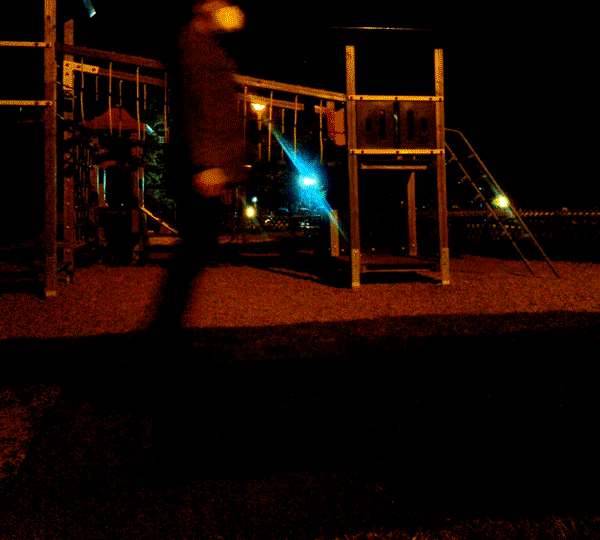
We discovered more frequencies in and around the place. An entertainer came during dinner the next day and we had to take off. The bushes outside were square and so were the lights so our shadows wore matching tuxedos that night. Lights, we found out, had more peculiar quirks. Back in the room, the lamps had no switches. One had only to touch them. Where you touched them didn’t matter, they seemed incredibly, refreshingly indifferent.
Differences in refresh rate: Hand duplication – that was the next trick.
When they tell you that you get a light (individual), what you really get are many lights. So many, in fact, that you couldn’t possibly keep track of them which is kind of a terrible waste. To combat this loss, we set up a camera like they do around deer feeders. The forest can be terrifying at night. The camera and the lamp have much in common, especially in the temporal domain. At the border between those two entities is where you can observe strange phenomena, fingers multiplying.
That’s how that happened. Again, sorry for the disturbance. The temporal domain can be finicky that way.
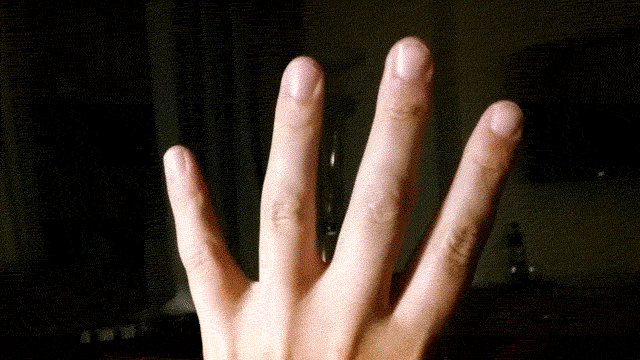
- Dueling frequencies.
- Digital media trash at your command, trash a lamp, trash your hand, multiply your hand, see your hand multiplying without even pressing the record button. A moment before the shutter changes.
- Frequencies.
- The things we tune in to, outside wavelengths; a way to say, this is trash you should remember.
Rot, decay (and trashing)
- Deponie.
- German noun derived from the verb deponieren /depoˈniːʁən/, "'to deposit, to place', borrowed (around 1500) from Latin dēpōnere 'to set down', also 'to lay down for safekeeping, entrust, hand over'; derived from Latin pōnere (positum) 'to set, to place, to lay', and see de-. Deponie for ‘landfill, dumpsite’ (20th century)" (https://www.dwds.de/wb/Deponie).
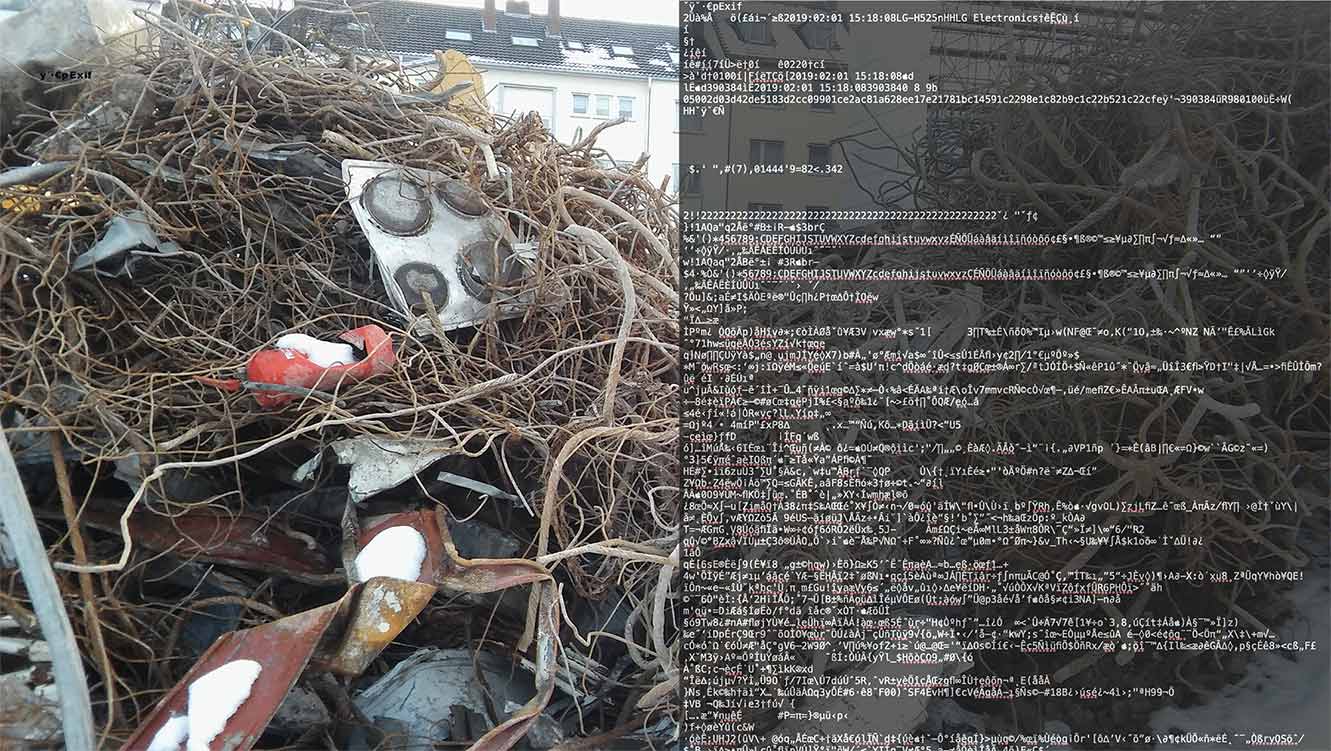
- Deponie.
- A dumping ground where strange and interesting things may pile up. Designated pointless, composed for compost, so that it may overgrow and bloom in unexpected ways; to discard but not to lose. (www.kreativdeponie.de).
- Junk.
- these are containers you can fold but
wasn’t there a full stop here?
creased into sentences you didn’t say when drawing
hands that fit to wing spans, or was it other lines, memories becoming
baskets becoming
each one fitted carefully into
the last, then
again
lamps becoming birds,
becoming rot
Oh, the damn shaver again. You see, the electric razor had given up the ghost some days ago and since he was already on the brink of dishevelment by default he couldn’t let the matter rest. The device itself had been a calculated purchase, the internal nickel-cadmium batteries were a weak point in an otherwise well rounded product. Those were inevitably going to fail due to a pronounced memory effect, at which point the average consumer would have little choice but to replace the thing altogether. Not accessible, see. Sealed deep within a watertight chassis. No screw holes, of course. Fuckers.
Grabbing a particularly large hammer from his box of hammers, he smashed the fucking thing and it flew to pieces. The battery pack erupted in a jet of hot fumes on the floor. That’s alright, the floor is tile. The fire alarm went off so he smashed that too, smashed it right into the ceiling. The plaster collapsed inward and the remains disappeared in the crater. He took the spare shaver from his collection of shavers and placed it in the bathroom. The line had to be observed as always so he picked up all the scattered screws and other intact bits and sorted them into the many labeled containers he kept for just that purpose. This felt right. He should have done this years ago. All his goals were intact. He was ecstatic, brimming with electricity.
So how did the nostalgia trip go?
Total nightmare! My drives had gone bad.
I pulled one backup before they threw read errors.
Sounds bad. Is it all gone then?
Well, technically it’s still there. It's fixable.
Sounds like you've taken on a new project then.
Hey, ultimately, that’s up to you…
Be sure to check in. Just, from time to time, okay?
The bits had become a bother. Everything, when you break it down, is made of bits and pieces. Put it back together and you can potentially make anything you like. But you gotta have the right bits and you need to know how to put it all together. Isn’t that a thing worth dedicating your life to?
Isn’t it worth a little sacrifice? Storage space?
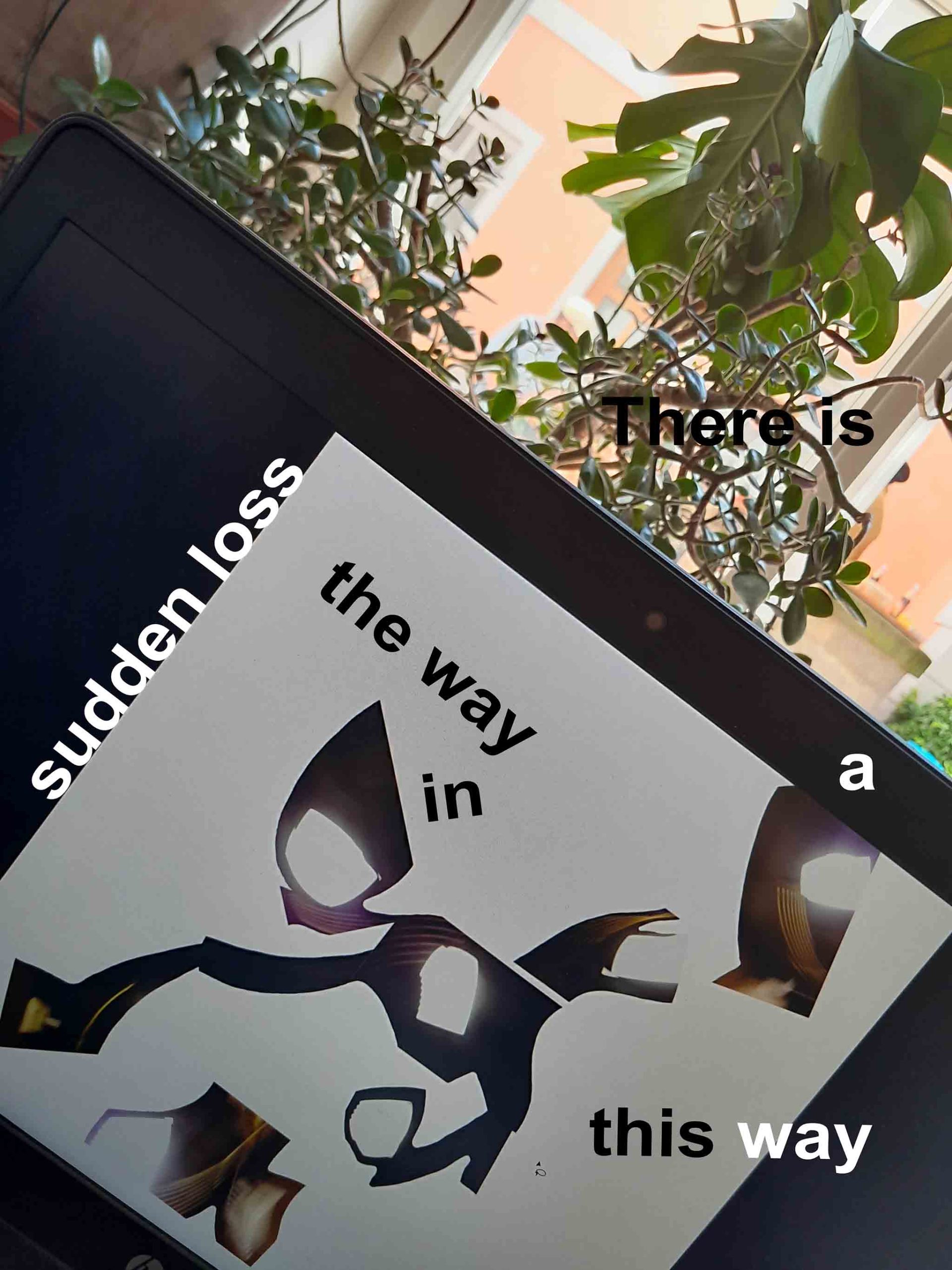
Still, they had become a bother. He stepped on them when he got out of bed. They wound up in the cracks of his sofa, a seemingly endless supply under the furniture. To make sure he wasn’t losing his mind he had started drawing circles around individual pieces in an attempt to corral them, trap them like bugs with a marker. But the floor must have been uneven or his constant moving was causing things to shift, slightly, day by day.
Observing was pointless. Even when he had picked it all up, sorted them and stacked the boxes, he’d still find more the week after. Had to buy more boxes.
Think of it this way:
If you arrange all the blood vessels of the human body in a line, they’d be 60.00 miles long.
I think all of those parts work the same way
Once it’s all disassembled it takes up more space because it’s no longer compact.
And you’re sure you haven’t just bought heaps of junk and forgot about some of it?
Positive. I couldn’t possibly.
He woke up in the dark, cramping from the awkward position he had slept in. His watch was missing the dial but he could tell by the hands that it was morning. The boxes now blocked the windows, he’d moved them there to free a path connecting the rooms but since then, new boxes had come. He had altered the straight paths then, but they had started snaking. He’d have to duck or step over. Some of the printers were still running, spitting out prints of old memories. He set it up that way, somewhere the computer was running a batch script. He was on a date and couldn’t find the keys. He couldn’t leave the house without his keys. He had been searching all day, now digging into boxes, scratching them open like mice do. He was in a corner he no longer recognized and the line he had put down to navigate now ended in a wall.
Start over, you’re telling it wrong!
[1] If we could randomly generate the order of our names, like a random number generator or roll of the dice, we would. As Sarah wrote in a comment box while working together on this piece:
Since this order has changed again and again now and seems to, in itself, have been undergoing a cycle of trashing and transformation, how about we add an end note here that states something like, ‘We would love to trash any inferred hierarchy projected onto how our names are ordered, but couldn’t, and thus had to go with the good old alphabetical order.’
In addition, all images here were made by us, most in some form of collaboration or another.
